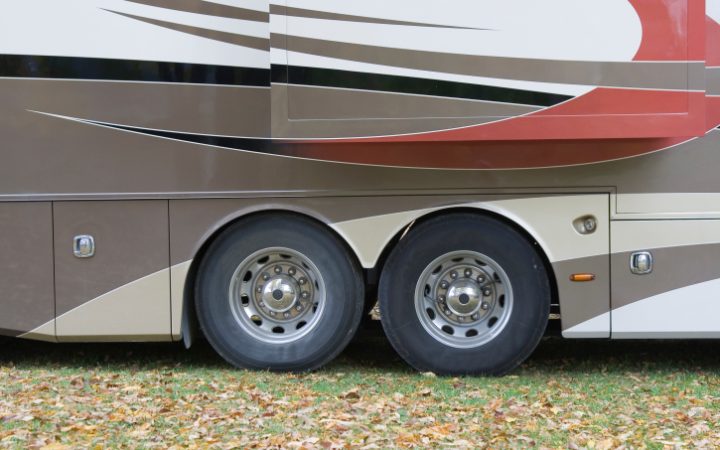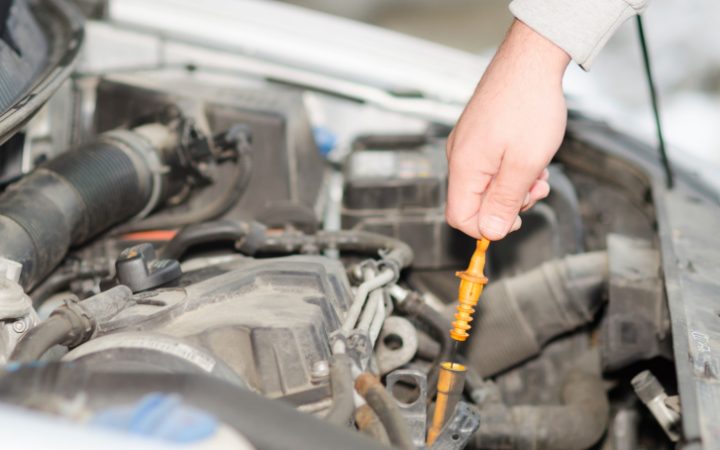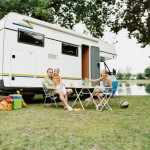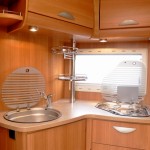Your Spring roll out check list may appear endless, but the following ten tips should insure that the most basic and important checks will find problems before they spoil your first of the season camping trip—or worse, cause more damage to undetected problems. You can add your own favorite check list items to this list.
Batteries. You probably haven’t been diligent about keeping your batteries charged through the winter, so also check the water level and the voltage. Clean connections of corrosion and recharge.
 Tires. Tires can lose 2 psi or more per month while in storage. Check the pressure and bring up to the manufacturer’s suggested inflation based on the RV’s load. Don’t forget the spare. Inspect for any sidewall damage.
Tires. Tires can lose 2 psi or more per month while in storage. Check the pressure and bring up to the manufacturer’s suggested inflation based on the RV’s load. Don’t forget the spare. Inspect for any sidewall damage.
Leaks. Perform a thorough leak inspection on all roof openings (vents, air conditioner, TV antenna, etc.) and around windows and entry door. Caulk even the smallest cracks. Leaks – and any water-related damage (rot, mold, etc.)—should be repaired immediately as damage will continue if it isn’t.
Fluid levels. Check the transmission, brake, power steering, and engine oil levels, radiator coolant, and windshield washer fluid. Top up where needed. Then start your engine and make sure all gauges are reading correctly.
Lights. Turn on all exterior lights: head, high beam, parking, tail, brake, and turn signals. Make sure you have spare bulbs for all interior lights.
Appliances. Clean all appliances as well as outside access covers of debris, spider webs, etc. and turn on to make sure they are operating correctly (verify that the water heater tank is full). Fill your propane tanks. The LP gas system should have a leak and operating pressure test annually by an authorized facility and this would be a good time to do it.
 Water system and plumbing. If you winterized your plumbing system, de-winterize it now. Run fresh water through the system and open all faucets until all traces of antifreeze and sanitizer are gone. Close all faucets and run water pump. If it cycles on and off you have a leak somewhere.
Water system and plumbing. If you winterized your plumbing system, de-winterize it now. Run fresh water through the system and open all faucets until all traces of antifreeze and sanitizer are gone. Close all faucets and run water pump. If it cycles on and off you have a leak somewhere.
Generator. It my be hard to start after sitting unused due to lack of fuel in the lines. After it starts check oil level.
Sewer hose. Run a tank of clean water through your dump hose to check for leaks before you use to dump your black tank. They only last so long. Might be a good time to replace it.
Awning. Roll out and look for fabric tears or holes. Make sure it rolls out easily. If not have an RV repair facility check and adjust the spring tension.



Bob Difley
Camping World (“http://www.campingworld.com/category/rv-patio-awnings/256”) carries electric awnings of all sizes. You can price them online. As far a winterizing, you will not have to winterize in Tucson, only in places where hard freezes are likely.
Sheryll
I am thinking of buying an RV — never having owned one — for myself and dog and cat. I am only moderately mechanical (would rather have someone else do everything!) but willing to learn some things. I do NOT want to fuss with rolling out awnings. What is the cost to make an awning electric?
I live in Tucson and would use the RV all year long for short trips, so do I need to winterize? We’ve have a few days/nights of slightly below freezing. Thank you.